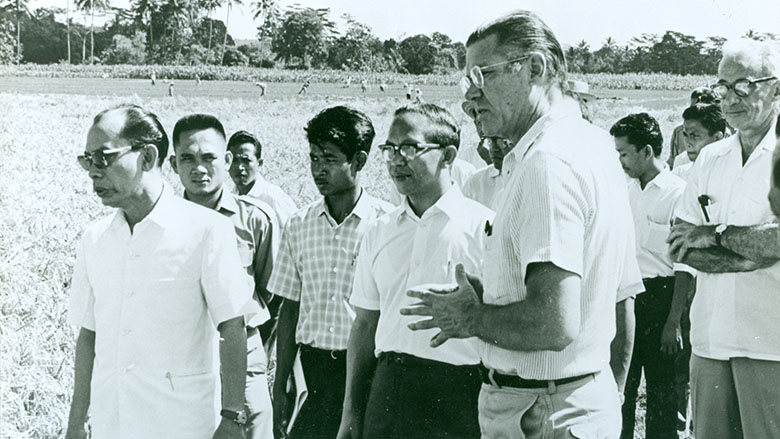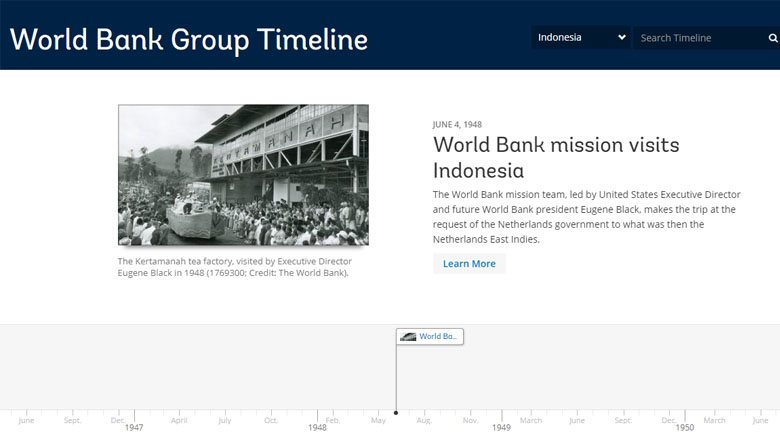Fifty years ago, in 1968, Robert McNamara chose Indonesia for his first overseas trip as president of the World Bank Group. This was a strong signal of his special interest in the country—right from the start of his presidency—and marked the beginning of greater engagement between Indonesia and the World Bank. During his visit, McNamara sought to learn how the World Bank Group could help Indonesia, both in the short and long term, and he finalized discussions surrounding a permanent mission in Jakarta, which would open a little over a year later.
Within a few months of his visit, the funding for the first World Bank Group project in Indonesia was approved, the Irrigation and Rehabilitation Project. This marked the beginning of a major effort in the agricultural sector of Indonesia, providing support to a range of areas from irrigation and fertilizer production to agricultural extension and oil palm. Soon after, projects would be approved in other sectors including transportation, electricity, telecommunications, and education. As new issues emerged in the coming years, the World Bank and Indonesia worked together to address them.
The 1970s saw the development of Indonesia’s tourism sector. The Bank became involved in that too, providing funding for the Bali Tourism Project, including infrastructure for a new tourism estate on Nusa Dua, on the island of Bali, including road access to the estate and training facilities for hotel staff. This helped attract private investors to the area while maintaining the island’s unique social and cultural life.
In the 1980s, as environmental concerns around the globe were becoming more prevalent, the Indonesia – Forest, Land and Water: Issues in Sustainable Development report was released. This was the first World Bank report to focus on the environment in the context of Indonesia’s development efforts. The report recommended that unsustainable practices be identified early on and emphasized that resources such as forests, land, and water have important ecological functions which are not easily measured in economic terms.
Twenty years ago, in 1998, the Kecamatan Development project was approved. It provided block grants to villages based on proposals selected through the sub-district council – or kecamatan – of village heads. In addition to building and improving public infrastructure, the project strengthened kecamatan and village government institutions while raising rural incomes. The initial project was piloted in 25 villages.
Within nine years, it was renamed as the National Program for Community Empowerment, expanded to all rural communities, and with its urban sister program (the Urban Poverty program), it formed the government’s national flagship poverty reduction program becoming one of the largest community-driven development programs in the world. It reached more than 70,000 villages and urban wards and created over 31,000 roads, 8,000 bridges, 9,000 clean water supply units, 9,000 irrigation systems, 3,000 new or improved health posts, and 5,000 new or rehabilitated schools.
Just days after the massive earthquake and tsunami that hit south eastern Asia on December 26, 2004, the World Bank made funds available to address the crisis. The Bank remained a close partner in the following months and years, helping the affected communities by providing funding and collaborating with other multilateral organizations to rebuild Aceh.



